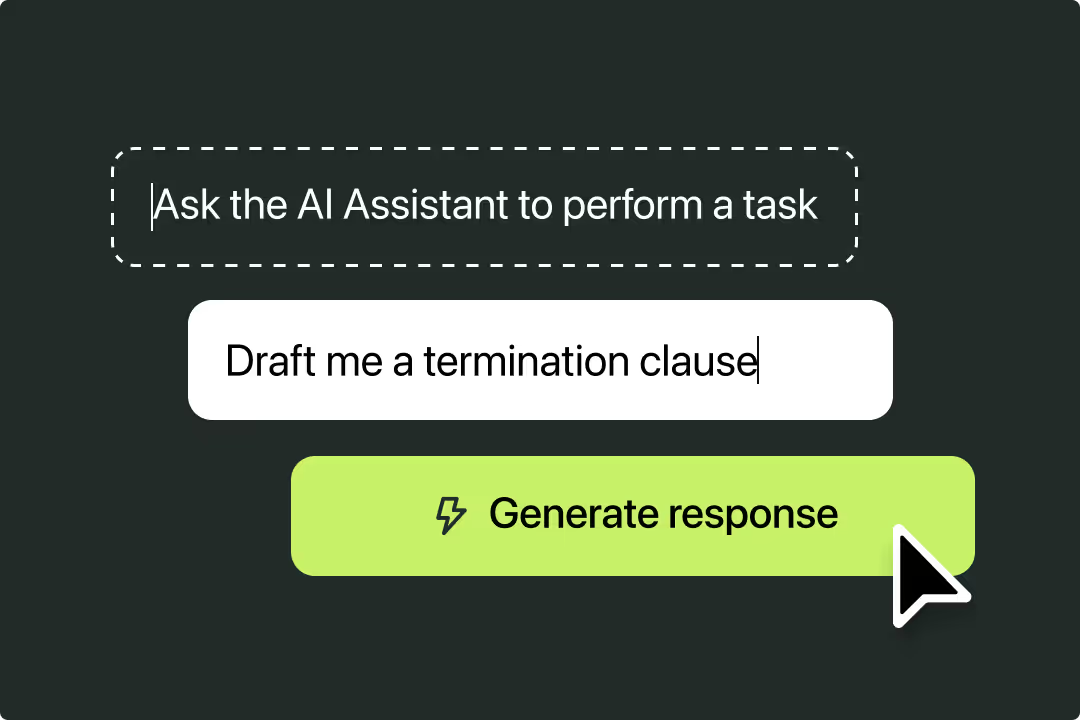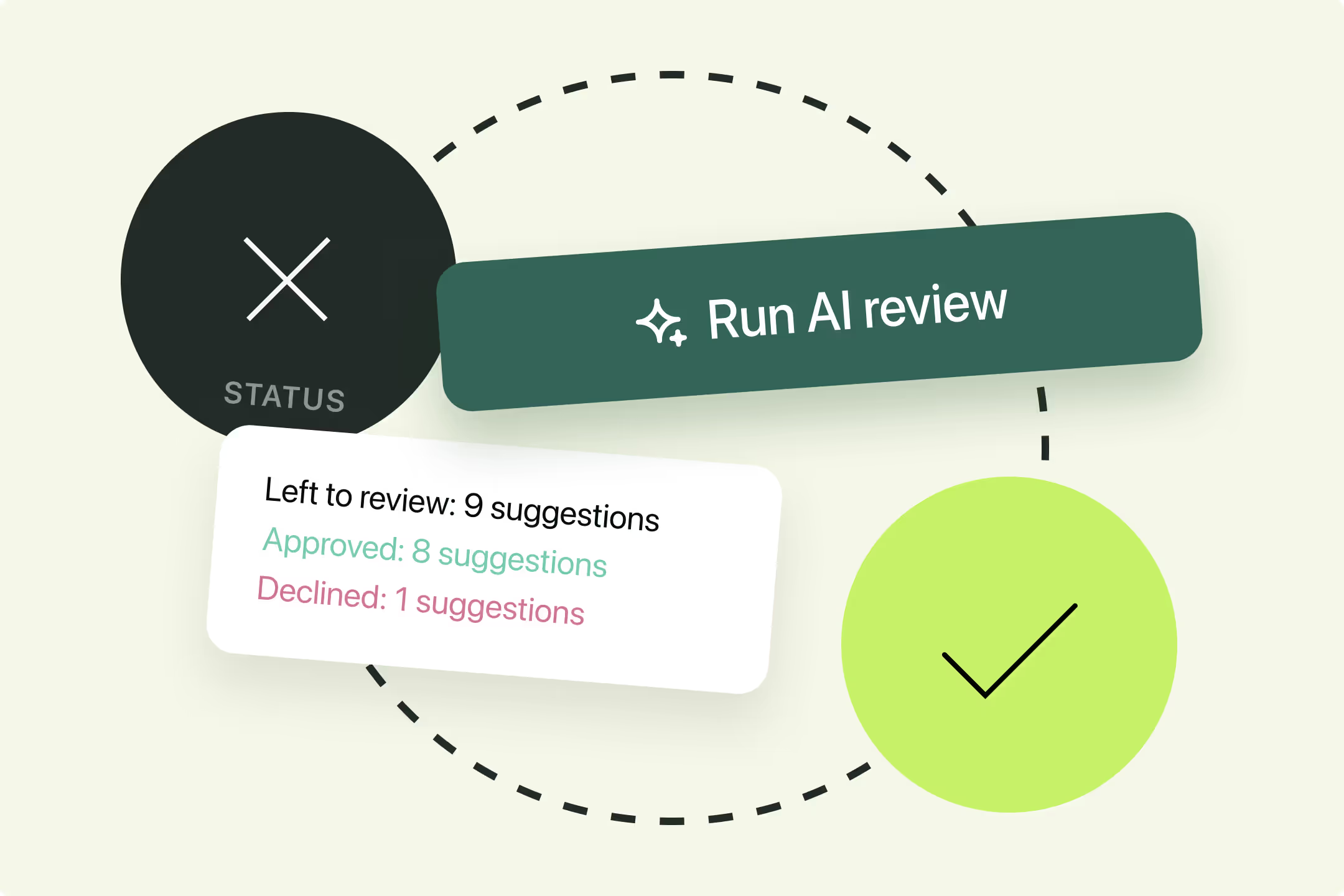Solutions
Customer Support
Resources
Service contracts are legally binding agreements between a service provider and a client, detailing the scope of services to be provided, payment terms, duration, and other essential conditions.
These contracts govern the relationship and ensure both parties understand their obligations and expectations before, during, and after the delivery of the service.
However, they vary wildly depending on the nature of the business and the specific service being provided. With that in mind, let’s run through a few common examples of service contracts, and when they’re used.
There are plenty of contracts that fall into the category of a service agreement, from coaching agreements all the way to plumbing, photography, and waste management. Other examples include:

Service contract management presents a few unique challenges that many other business contracts do not, largely because of their variety and versatility.
The challenges of service contract management typically include:
Managing numerous service contracts with different terms can be overwhelming. For example, a software company might have contracts with several clients, each with distinct service scopes and renewal dates.
One client might require quarterly software updates, while another needs monthly maintenance checks. This diversity makes tracking and managing each contract more complicated.
Service contracts often include detailed deliverables and timelines. For instance, a facilities management company may have long-term contracts to provide cleaning, security, and maintenance services at different intervals.
Missing a scheduled maintenance check or a security upgrade can lead to contract breaches, unaccounted renewals, or disputes, resulting in penalties and damaged client relationships.
Ensuring all service contracts comply with legal and regulatory standards is challenging, especially when multiple departments handle contract drafting. For example, in the healthcare industry, service contracts must comply with strict patient data protection laws.
A single mistake in contract language can lead to severe penalties and legal action, jeopardizing the organization’s reputation and financial stability.
Fortunately, there are a few best practices and tricks that will empower your legal and business teams improve the way you manage service contracts, from initiation all the way to execution. Let’s cover them now.
Now, let’s turn our attention to the final point: what’s possible when you manage service contracts in a system like Juro.
Juro’s contract management software offers a robust solution to address the challenges of service contract management:
Accelerate the contract drafting and review processes with Juro’s legal AI assistant. Service providers can analyze contract language to identify key clauses, suggest improvements, and measure compliance with industry standards and internal guardrails.

Store all service contracts in one secure contract repository, providing easy access to contract data. This single source of truth simplifies contract organization, retrieval and management, allowing you to quickly find and review contracts with various clients.
The repository provides instant visibility into contract statuses, renewal dates, and service obligations, making sure all key contract data is captured and actioned in good time.

Manage service contracts end-to-end in a single, browser-native workspace, facilitating seamless collaboration across teams. Your legal, sales, and operations teams can work together in real-time, making edits, comments, and approvals without leaving the platform.
This ensures that all stakeholders are aligned on contract terms and updates, enhancing transparency and reducing the likelihood of miscommunication or delays in contract execution. This is perfect for bridging the gap between the teams delivering a service, and the ones offering it.

Automate key tasks like renewal tracking, compliance monitoring, and service contract reporting to reduce manual effort and minimize errors.
Juro’s automated contract reminders ensure no critical dates are missed, including renewal deadlines or service milestones, among other things.
Empower your business teams to self-serve on service contracts from the tools they already use, enhancing efficiency and productivity. Integration with existing business tools, such as CRM or project management software, ensures smooth workflows and reduces the need for manual data entry.
Juro’s seamless integrations mean your teams can focus on delivering high-quality services and managing client relationships, rather than getting bogged down by repetitive admin tasks, like populating contracts.

With robust contract automation features and integrated workflows, Juro empowers service providers to focus on delivering exceptional services while minimizing the burden on legal teams throughout the contract process.
To find out more about Juro’s intelligent contract management software, and how it empowers teams like yours to manage contracts 10x faster, book a demo below.

Lorem ipsum dolor sit amet, consectetur adipiscing elit. Suspendisse varius enim in eros elementum tristique. Duis cursus, mi quis viverra ornare, eros dolor interdum nulla, ut commodo diam libero vitae erat. Aenean faucibus nibh et justo cursus id rutrum lorem imperdiet. Nunc ut sem vitae risus tristique posuere.

